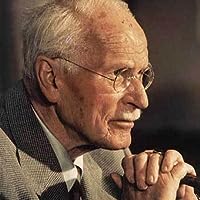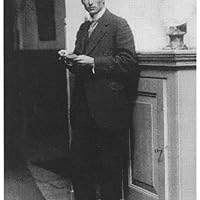Semiotics Quotes
Quotes tagged as "semiotics"
Showing 1-30 of 47

“Codes and semiotic conventions are a challenge for human communication, since they seal off people with a privacy protection label and make them accessible only by means of a barcode that might estrange them from their surroundings but, at the same time, procure them a kind of reassurance in their comfort zone. This dialectical situation may keep them struggling during their entire life. ("The unbreakable code " )”
―
―

“I had fallen in love. What I mean is: I had begun to recognize, to isolate the signs of one of those from the others, in fact I waited for these signs I had begun to recognize, I sought them, responded to those signs I awaited with other signs I made myself, or rather it was I who aroused them, these signs from her, which I answered with other signs of my own . . . ”
― Cosmicomics
― Cosmicomics

“Semiotics is in principle the discipline studying everything which can be used in order to lie. If something cannot be used to tell a lie, conversely it cannot be used to tell the truth: it cannot in fact be used "to tell" at all.”
― A Theory of Semiotics
― A Theory of Semiotics

“Reading a novel after reading semiotic theory was like jogging empty-handed after jogging with hand weights. What exquisite guilt she felt, wickedly enjoying narrative! Madeleine felt safe with a nineteenth century novel. There were going to be people in it. Something was going to happen to them in a place resembling the world. Then too there were lots of weddings in Wharton and Austen. There were all kinds of irresistible gloomy men.”
― The Marriage Plot
― The Marriage Plot

“The good of a book lies in its being read. A book is made up of signs that speak of other signs, which in turn speak of things. Without an eye to read them, a book contains signs that produces no concept; therefore, it is dumb.”
―
―

“This book has two determinants: on the one hand, an ideological critique of the language of so-called mass culture; on the other, an initial semiological dismantling of that language: I had just read Saussure and emerged with the conviction that by treating “collective representations” as sign systems one might hope to transcend pious denunciation and instead account in detail for the mystification which transforms petit bourgeois culture into a universal nature.”
― Mythologies
― Mythologies
“The transference of culture in time can, in large measure, be described as the conservation of sign systems serving as a control on behavior.”
―
―

“Nothing is more important than who controls the signs. To change the world, it is necessary to change the signs that are used to condition people.”
― Hypersex
― Hypersex
“natural language will always remain the basic interpretation of, and reservoir for, the development of the artificial formalized languages of science.”
―
―

“There is no longer any difference between the economic and the political, because the same language reigns in both, from one end to the other; a society therefore where the political economy, literally speaking, is finally fully realized.”
― Simulacra and Simulation
― Simulacra and Simulation

“He mentally perceived words as having various sizes, densities, depths; words were dark stars, some small and dull and solid, some immense, complex, subtle, with a powerful gravity-field that attracted infinite meanings to them. Freedom was the biggest of the dark stars.”
― The Birthday of the World and Other Stories
― The Birthday of the World and Other Stories

“I tell myself I have reached an age, the age of unreliable menace. The world is full of abandoned meanings. In the commonplace I find unexpected themes and intensities.”
― White Noise
― White Noise

“...isn’t it intriguing that thought cannot exist without language, and since language is a function of the brain, we would have to say that language---the ability to experience the world through symbols---is in some sense a physical property of human beings, which proves that the old mind-body duality is so much nonsense, doesn’t it? Adieu, Descartes. The mind and body are one.”
― Invisible
― Invisible

“Every view which interprets the symbolic expression as an analogous or abbreviated expression of a known thing is semiotic. A view which interprets the symbolic expression as the best possible formulation of a relatively unknown thing, which for that reason cannot be more clearly or characteristically represented, is symbolic. A view which interprets the symbolic expression as an intentional paraphrase or transmogrification of a known thing is allegoric. The interpretation of the cross as a symbol of divine love is semiotic, because “divine love” describes the fact to be expressed better and more aptly than a cross, which can have many other meanings. On the other hand, an interpretation of the cross is symbolic when it puts the cross beyond all conceivable explanations, regarding it as expressing an as yet unknown and incomprehensible fact of a mystical or transcendent, i.e., psychological, nature, which simply finds itself most appropriately represented in the cross.”
― Psychological Types
― Psychological Types

“...no theory of hermeneutic legitimation can be indeed legitimate if not by the process of hermeneutic reading… At the origin of the hermeneutic practice, there is a circle; it does not matter how holy or how vicious.”
― Semiotics and the Philosophy of Language
― Semiotics and the Philosophy of Language

“(...), dat alle woorduitingen meer of minder ontwikkelde verbale imperatieven zijn, dat dus toespreken altijd neerkomt op bevelen of bedreigen, en begrijpen op gehoorzamen; (...)”
―
―
“…semiotic interpretations are not intended to answer the question of what forms mean. That might be a problem of iconology, or iconography, or psychology, or – of course – criticism. The issue which semiotics must address is not what forms mean, but rather how they mean the various things they mean the various things they do. In other terms, semiotics must study the expressive systems operating in each case: which traits of the form convey meaning, to which other traits they are opposed, how the relation between form and meaning originated, how meanings change, how interpretation is achieved, and so on.”
―
―
“One does not speak about history but the present, semiotics of systems with production in not only one but the system of movements. System of paradigms of the past, or systems of paradigms, and the system and systems of future paradigms, in positive theory of art.”
―
―

“True wrestling, wrong called amateur wrestling, is performed in second-rate halls, where the public spontaneously attunes itself to the spectacular nature of the contest, like the audience at a suburban cinema.”
― Mythologies
― Mythologies

“This is why myth is experienced as innocent speech: not because its intentions are hidden—if they were hidden, they could not be efficacious—but because they are naturalised.”
―
―

“It was not Gilda and a racquet being used reflexively to some purpose. It was not Gilda using a racquet. It was one thing, maybe you could call it a Gilda-racquet-court-net-game-situation-two-other-players-wind-sunshine object. But there was only one thing there. To seperate us out would be to miss the reality.”
― Gilda Trillim: Shepherdess of Rats
― Gilda Trillim: Shepherdess of Rats

“Perception is always interrogative and conditional and is invariably based (even if we do not realize it) on a bet.”
― Semiotics and the Philosophy of Language
― Semiotics and the Philosophy of Language

“The task of general semiotics is that of tracing a single formal structure which underlies all these phenomena, this structure being that of the inference which generates interpretation.
The task of specific semiotics, on the other hand, will be that of establishing—according to the sign system in question—the rules of greater or lesser semiotic necessity for inferences (institutionalization rules).”
― Semiotics and the Philosophy of Language
The task of specific semiotics, on the other hand, will be that of establishing—according to the sign system in question—the rules of greater or lesser semiotic necessity for inferences (institutionalization rules).”
― Semiotics and the Philosophy of Language

“Perhaps we are, somewhere, the deep impulse which generates semiosis, And yet we recognize ourselves only as semiosis in progress, signifying systems and communicational processes. The map of semiosis, as defined at a given stage of historical development (with the debris carried over from previous semiosis), tells us who we are and what (or how) we think.”
― Semiotics and the Philosophy of Language
― Semiotics and the Philosophy of Language

“If metaphors require an underlying cultural framework, then the heiroglyphhic language of the gods cannot be a merely primitive stage of human consciousness: it needs the presence of both the symbolic language of heroes and the epistolary language of me as its starting point. Thus Vico is not speaking of a linear development from a metaphorical language to a more conventional language, but of a continual, cyclical activity.
The language of the gods is a heap of unrelated synedoches and metonymies…”
― Semiotics and the Philosophy of Language
The language of the gods is a heap of unrelated synedoches and metonymies…”
― Semiotics and the Philosophy of Language

“No algorithm exists for the metaphor, nor can a metaphor be produced by means of a computer’s precise instructions, no matter what the volume of organized information to be fed in. The success of a metaphor is a function of the sociocultural format of the interpreting subjects; encyclopedia. In this perspective, metaphors are produced solely on the basis of a rich cultural framework, on the basis, that is, of a universe of content that is already organized into networks of interpretation, which decide semiotically) the identities and differences of properties.”
― Semiotics and the Philosophy of Language
― Semiotics and the Philosophy of Language

“There comes a time when one has to make up one’s mind and choose which side one is on. The catoptric universe is a reality which can give the impression of virtuality, whereas the semiotic universe is a virtuality which can give the impression of reality.”
― Semiotics and the Philosophy of Language
― Semiotics and the Philosophy of Language

“There is no reason to assume that the unceasing forward march of techne will not eventually achieve a mimesis which replaces a natural world with an intelligible artificial one. If the simulacrum is so well designed that it becomes an effective organizer of reality, then surely it is man, not the simulacrum, who is turned into an abstraction.”
― The System of Objects
― The System of Objects
All Quotes
|
My Quotes
|
Add A Quote
Browse By Tag
- Love Quotes 97k
- Life Quotes 75.5k
- Inspirational Quotes 72.5k
- Humor Quotes 43.5k
- Philosophy Quotes 29.5k
- Inspirational Quotes Quotes 27k
- God Quotes 26k
- Truth Quotes 23.5k
- Wisdom Quotes 23.5k
- Romance Quotes 23k
- Poetry Quotes 22k
- Death Quotes 20k
- Happiness Quotes 18.5k
- Life Lessons Quotes 18.5k
- Hope Quotes 18k
- Faith Quotes 18k
- Quotes Quotes 16.5k
- Inspiration Quotes 16.5k
- Spirituality Quotes 15k
- Religion Quotes 15k
- Motivational Quotes 15k
- Writing Quotes 14.5k
- Relationships Quotes 14.5k
- Life Quotes Quotes 14k
- Love Quotes Quotes 13.5k
- Success Quotes 13.5k
- Time Quotes 12.5k
- Motivation Quotes 12k
- Science Quotes 11.5k
- Knowledge Quotes 11k



